
Poker Strategy
Welcome to our Poker Strategy Articles section. Poker is a game of strategy. Anyone that tells you differently is ignorant or a losing poker player. If you study the game and the strategies, you will understand the tactics to becoming a winning player, improve your game, and ultimately win money. We at ITH have accumulated the most comprehensive collection of texas holdem articles to help you learn, gain confidence and most importantly WIN.
We incorporate strategiy discussions on everything from playing hands to winning the mental game. Peruse the sub-categories here or browse all our strategy articles below.
For more poker strategy content, visit our Poker Forum Strategy sections and join in the discussions!


Quiz: Playing with the Initiative, Combination-Call, and Value-Betting River
Playing with the initiative, making a combination-call, and value-betting the river It's a five-handed 50¢-$1 pot-limit Omaha game online (six-max).
Omaha Hi-Lo Odds – Put Tilt in Perspective
the importance of aligning poker expectations with statistical realities, particularly in Omaha Hi-Lo, discussing how players often tilt due to unrealistic hopes, and providing insights into the probabilities of certain hand outcomes during the game to help players make informed decisions and avoid costly mistakes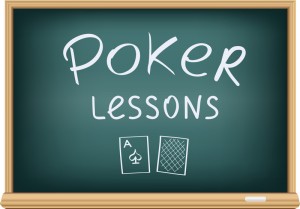
Schooling – Playing in Loose Poker Games
the concept of "schooling" in poker, where a group of poor players, referred to as "fish," collectively protect each other in a game, making it challenging for skilled players to win
The Mississippi Straddle
intricacies of the Mississippi Straddle in pot-limit Omaha (PLO) poker, explaining its advantages when combined with advanced positional skills, especially the float, and contrasts it with the under-the-gun (UTG) straddle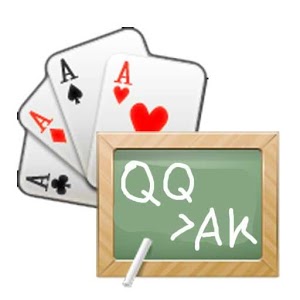
When to Raise Draws for Value
strategic considerations of when to raise or call with drawing hands in poker, emphasizing the importance of understanding the value of one's draw in relation to the number of opponents and pot dynamics, while also touching on concepts like semibluffing and seeking free cards
Bluffing in the WSOP Main Event Part I
the strategic advantages of having large chip stacks in the World Series of Poker main event, highlighting specific hands the author played, including a memorable bluff against a solid player and the dynamics of playing against poker legend Doyle Brunson
Poker Psychology : Rationalizing Decisions
the concept of rationalizing in poker, explaining how players often justify their decisions based on emotions or impulses rather than logical reasoning, emphasizing the importance of making decisions based on long-term expectations and the dangers of relying solely on instinct
Winning Preflop in Omaha Hi-Lo
the importance of selective hand choice in Omaha Hi-Lo poker, highlighting that many beginners' primary mistake is playing too many starting hands, and underscores the value of well-coordinated hands that can win in both high and low directions, ultimately stressing that a player's edge largely comes from superior preflop decisions compared to opponents
Why Every Poker Player is Unlucky
the inherent role of luck in poker, arguing that every player experiences both good and bad luck in various forms, and emphasizes the importance of recognizing these nuances, avoiding the trap of selective memory, and focusing on making informed decisions rather than dwelling on perceived injustices in the game
Beating Fish in Limit Holdem
strategies on how to effectively play against three types of inexperienced poker players: the overaggressive, the limper, and the predictable, offering insights on recognizing and adapting to each type to maximize profit opportunities in higher stakes games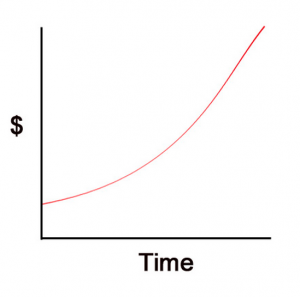
Who is the Most Confident?
the pros and cons of multi-tabling versus playing at higher stakes in poker
The Realities of a Re-buy Tournament
insights into the strategies and considerations for playing in Re-buy and Add-on (R&A) poker tournaments, emphasizing the importance of managing one's bankroll, understanding the dynamics of the initial re-buy phase, and adapting to the aggressive playstyle often seen in these tournaments
Skills Learned Playing Short-Handed Limit Holdem
the unique skills and strategies required for short-handed limit hold'em, highlighting the importance of player categorization, adaptability, and aggression, while also discussing the benefits of playing in such settings, including the ability to better read opponents and capitalize on their mistakes
Playing With the Initiative After the Flop in PLO
the dynamics of post-flop play in Pot-Limit Omaha when a player has taken the preflop initiative, emphasizing the importance of balancing continuation-betting with taking free cards based on the number of players in the pot and the trickiness of opponents
How Not to Tilt
guidance on managing emotions and maintaining a positive mindset during poker games, emphasizing the importance of understanding the game's nature, preparing for losses, and viewing setbacks as learning opportunities to enhance one's skills and strategies in Omaha high/low
Lose Weight while Playing Poker!
unique approach to combining exercise and poker, detailing how using an elliptical machine positioned in front of a computer monitor allowed him to play online poker while working out
Draw Equity vs Float Equity – Part II
nuances of float equity in poker, contrasting it with draw equity, and underscores how float equity, derived from fold equity and opponent information, can have significant value in certain game situations, but its effectiveness is highly contingent on the playing style of opponents
Switching from Limit to No-Limit Holdem
discusses the author's transition from playing limit hold'em to no-limit cash games, highlighting the key differences between the two formats and offering tips for limit players considering making the switch
Playing Against the Blinds in Pot-Limit Omaha
insights into the strategy of playing against the blinds in pot-limit Omaha, emphasizing the importance of continuation betting, the decision-making process when on the button, and the factors to consider when deciding to raise or limp in
New Zealand Blues
the author's experience during a two-week vacation to New Zealand, where he participated in the New Zealand Poker Championships
Three-Betting Preflop
strategic nuances of three-betting with marginal hands in poker, using hand examples from three different authors to illustrate the thought processes and considerations behind such plays
Short Stack Strategy in Limit Holdem
the importance of understanding how to play against short-stacked players in limit hold'em, emphasizing that while many players overlook this aspect, it's crucial to adjust one's strategy when facing opponents with smaller stacks
The Power of the Big Draw
the strength and strategic advantages of having big drawing hands in Omaha poker, particularly in deep-stack situations, explaining how these hands can dominate the game dynamics, allow for aggressive betting without fear of being priced out, and offer significant implied value when they hit
The Basic Floats in PLO
strategies of floating in pot-limit Omaha, discussing various types of floats such as the naked float, weak-stab float, and semibluff float
Pot-Limit Omaha: The PokerTek Angle
he potential of pot-limit Omaha (PLO) games in Las Vegas, emphasizing the advantages of PokerTek's electronic poker tables in making PLO more accessible and affordable for players, and how these tables can cater to both new and existing poker players by offering smaller stakes games
Is Poker Gambling or Skill?
the longstanding debate regarding poker's classification, examining whether it's predominantly a game of chance or skill, and highlights that while poker involves elements of both luck and strategy, it's the blend of these factors that makes it unique, challenging the traditional definitions of gambling
Are Satellite Tournaments a Good or Bad Value?
the value and strategy of playing in satellite poker tournaments, cautioning players against entering satellites where they'd be outmatched in the main event, and emphasizing that while satellites offer a chance to play in bigger tournaments, they often lead to suboptimal play due to the high stakes and unfamiliarity with deep-stack dynamics
Shorthanded Pot-Limit Omaha
common mistakes players make in shorthanded pot-limit Omaha games, such as defending blinds too liberally, making large preflop raises from out of position, and not being aggressive enough
Starting Hand Chart
detailed hand charts to guide players on how to optimally play their starting hands in Texas Holdem, offering specific strategies based on one's position at the table and emphasizing the significance of making informed preflop decisions to gain an edge over opponents
PLO Quiz 3
A low SPR situation - Excerpt from Jeff’s book, Advanced Pot-Limit Omaha Volume II: LAG Play and The Short-Handed Workbook.
6 Reasons to Start Playing Omaha Hi Lo
the advantages of playing Pot Limit Omaha Hi Lo, highlighting its simplicity compared to other poker games, the opportunity to beat loose games at low limits, its lower variance, the excitement it offers, its suitability for bonus chasers, and how it can expand a player's poker horizons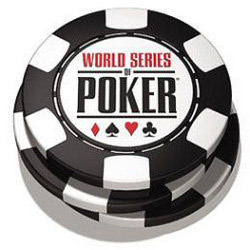
Reflections on My Results at the 2008 World Series of Poker
personal experiences and disappointments during the 2008 World Series of Poker, emphasizing the unpredictability of tournament outcomes despite thorough preparation
Following Through in PLO
the importance of maintaining betting momentum in pot-limit Omaha, suggesting that once players initiate a bet, they should continue to play as if they have the strongest hand until an opponent challenges them
Re-buy Tournament Strategy
the tactics and considerations for playing in Re-buy & Add-on (R&A) poker tournaments, emphasizing the distinct playstyle during the first hour, the importance of strategic re-buys and add-ons, and the need to adapt to the aggressive nature of such tournaments
Why Do Players Go on Tilt?
the psychological and emotional reasons behind poker players going on tilt, emphasizing that while bad beats and losses can trigger tilt, other factors like emotions, fatigue, boredom, and even alcohol can also contribute
Poker Stop Losses : When Should I Stop Playing
reasons and circumstances under which poker players should consider ending their gaming sessions, emphasizing that the primary reasons to quit are either not playing at one's best or being in a game that can't be beaten
Why Pot-Limit Omaha Games Must Get Smaller
the importance of structuring smaller-stakes pot-limit Omaha (PLO) games to ensure the game's growth, highlighting the challenges players face when overplaying their bankrolls and the need for sustainable PLO games that protect players from going broke
PLO Quiz
Playing with the initiative, making a combination-call, and value-betting the river - It's a five-handed 50¢-$1 pot-limit Omaha game online (six-max).
Omaha Hi-Lo Starting Hand Strategy Look-Fors
strategies for selecting and playing specific starting hands in Omaha Hi-Lo poker, emphasizing the importance of card coordination, the value of the ace as a key card, and the considerations for both high and low hand possibilities
PokerTek, Excalibur, and the PLO Revolution
the introduction of small-stakes pot-limit Omaha games on PokerPro electronic tables at the Excalibur Hotel and Casino in Las Vegas, emphasizing the advantages of electronic tables in facilitating smaller pot-limit Omaha games
Small Buy-in Tournaments on the Internet
contrasts the accessibility and advantages of online No-Limit Hold’em tournaments with live tournaments, highlighting the diverse opportunities online platforms offer for players of varying skill levels and bankroll
The Complete Guide to Playing Poker Maniacs
strategies and tips for playing poker against aggressive players, often referred to as "poker maniacs," emphasizing the importance of patience, position, and hand selection
Poker Tips for Beginners : Three Decisions that are Never Wrong
guidance on three fundamental decisions in poker that are almost always correct: not revealing your cards unless required, refraining from engaging in table chat to avoid giving away information, and consistently playing strong hands aggressively
Poker Bankroll Strategy : Wipeout
the challenging reality that poker players might face when they lose their entire bankroll, emphasizing the importance of understanding the reasons behind such losses, whether it's due to skill level, tilt, poor bankroll management, or sheer bad luck
High Value Limit Holdem Bluffs
the art of bluffing in limit hold'em, discussing its significance in modern, tighter games and presenting five specific situations where bluffing can yield significant equity
Poker Psychology : Logical Fallacies
common logical fallacies that poker players often fall victim to, emphasizing the importance of clear, logical thinking for success at the poker table and warning against making decisions based on flawed reasoning or misconceptions
NFL Betting Tips – One More for the Road
advice on NFL betting, emphasizing the importance of understanding subtle edges, recommending specific betting strategies like six-point teasers on home teams, and highlighting the significance of line variations, and stressing the need to join multiple betting sites to get the best odds and take advantage of bonuses
Working in Your Underwear: The Pitfalls of Comfort
the potential pitfalls of becoming too comfortable while playing online poker, emphasizing the importance of maintaining a disciplined posture and behavior to avoid developing bad habits that could be detrimental in live games, and offers strategies to ensure one remains engaged and alert during online sessions
Poker Pitfalls Resulting From a Faulty Mindset
while technical skills in poker are essential, many players fail to achieve success due to mindset issues such as not accepting the realities of poker, being short-term focused, playing with fear, letting ego interfere, and not continually improving their game
Winning the PokerStars Nightly 100K
the author's experience and strategy in navigating the PokerStars Nightly Hundred Grand tournament, highlighting key hands played, decisions made, and the challenges faced during the heads-up battle
Limit Hold’em Quiz
Playing the Nuts Most players love to discuss hands when the value of a hand is not very clear.
Choosing a Poker Site : Decision, Decisions, Decisions
the various considerations and decisions a poker player should make before starting a game, including selecting the right poker site, game type, table format, betting structure, and even factors like the time of day to play
AP Newswire May 24, 2025: Joshua Hilger takes home the 2025 WSOP
Joshua Hilger takes home the 2025 WSOP - just a fun hypothetical folks!
Am I Delusional?
author's poker strategy after bluffing off 125 big blinds, analyzing the hand in detail, and seeking feedback from the poker community to determine if the play was justified or a result of delusional thinking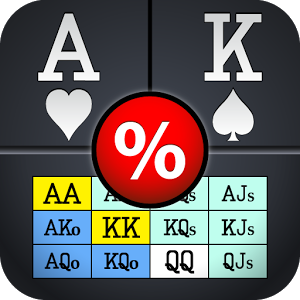
The Nut-Flush Draw
the strength and strategy of playing the nut-flush draw in pot-limit Omaha, illustrating its power against various hand combinations, even when up against strong hands like A-A-X-X
Variable-Ratio Reinforcement
psychological concept of variable-ratio reinforcement, explaining how it's used in gambling scenarios like slot machines to regulate player behavior, and hints at its application in pot-limit Omaha poker, particularly in relation to continuation-betting strategies
Raising Draws for Value in Limit Holdem
the strategic nuances of when to raise or call with drawing hands in limit hold'em, emphasizing that players often undervalue their big draws on the flop and that understanding the best hand isn't always about having a made hand, but rather the hand with the highest probability of winning by the river
River Bluffs in Limit Hold’em
the strategy of bluffing on the river in limit hold'em, emphasizing the importance of recognizing situations where bluffing can be profitable, even if it doesn't succeed every time
Mixed Hold’em
introduces a new form of poker that combines elements of limit, pot-limit, and no-limit hold'em, aiming to create more post-flop action and excitement for both players and viewers, with the game transitioning from limit play pre-flop, to pot-limit on the flop, and finally to no-limit on the turn and river, thus emphasizing post-flop skills and offering a dynamic playing experience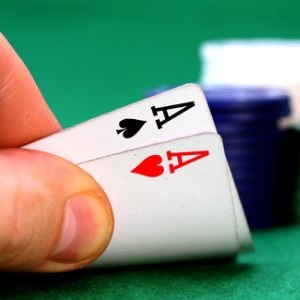
Weaving Through 9,999 Opponents
author's experience in a $100K Holiday freeroll poker tournament at Full Tilt Poker, detailing the strategies employed, challenges faced, and the unexpected luck that led to a triumphant win among 10,000 participants
Poker Luck and Skill : Variance or Bad Play?
the intertwined roles of luck and skill in poker, emphasizing that both factors contribute to a player's results
Profiling Errors
common mistakes players make when profiling their poker opponents, such as stereotyping based on initial perceptions, giving undue weight to early observations (primacy effect), and making assumptions based on one's own characteristics (projection)
Las Vegas Pot-Limit Omaha
introduction of a small-stakes pot-limit Omaha (PLO) game at The Venetian poker room in Las Vegas, detailing the specific structure of the game, the reasons for choosing The Venetian as the venue, and the game's growing popularity among players
Poker Tilt Tips : Your Guilty Conscience
psychological aspects of poker tilt, likening it to the conflicting voices of temptation and reason, as portrayed in Eminem's song "Guilty Conscience"
Structuring Sustainable Small-Stakes
guidelines on how to structure a sustainable small-stakes pot-limit Omaha (PLO) game, emphasizing the importance of setting a maximum buy-in, avoiding straddles, and ensuring that games are played with deep stacks to prevent short-stacking
PLO Practice-Hand Quiz No. 2
Raising preflop, the combo float, and value-betting the river It's a $1-$2 blinds game, $5 to bring in.
Playing Pocket Pairs in Tournaments
various strategies and considerations for playing small to medium pocket pairs in poker tournaments, emphasizing the importance of understanding the situation and adapting one's play accordingly
Staying in School and Poker as a Career
the importance of completing one's education before considering poker as a full-time career, highlighting the risks and challenges of professional poker, the evolving nature of the game, and the potential long-term implications of a career gap on one's résumé
